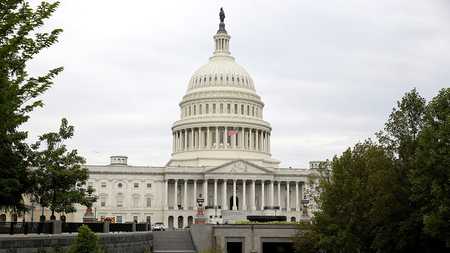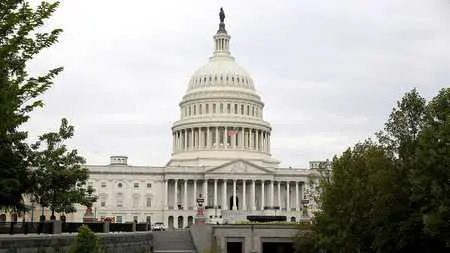
**Editor's note: **Hamzah Rifaat Hussain is a former visiting fellow at the Stimson Center in Washington and serves as assistant researcher at the Islamabad Policy Research Institute (IPRI) in Pakistan. The article reflects the author's opinions and not necessarily the views of CGTN.
The barrage of legislation countering China as part of Joe Biden's maximum pressure strategy continues unabated with the latest version targeting perceived Chinese censorship of Americans and American companies. The new censorship bill enables the President to set up an interagency force under the National Security Council to monitor intimidation of U.S. companies and American citizens by China. The demerits of pursuing such legislation and promoting threat perceptions are obvious.
Firstly, the premise cited for the passage of the bill is that Beijing continues to stifle criticism beyond its borders. However, the bill itself, which is being sponsored by Republicans Marco Rubio, John Cornyn and Democrat Elizabeth Warren, actually takes a lead from similar legislation in 2019 during the Trump era.
In 2019, the Trump administration delisted Chinese companies from American stock exchanges as 217 firms with a combined market share of $2.2. trillion found themselves at the receiving end of a campaign that features trade wars, tariffs and the revoking of licenses of prominent Chinese companies such as Huawei.
Back then, the law was called the Holding Foreign Companies Accountable Act (HFCAA). Yet, interestingly enough, the president cited the failure of Chinese companies to comply with American auditing oversight as a justification for the delisting. Numerous analysts and commentators considered the HFCAA to be directly targeting Chinese firms despite having an international orientation as a smokescreen. If lack of compliance with auditing standards was the benchmark for delisting in 2019, why is the latest revival factoring in intimidation of U.S. companies and citizens?
Apparently, the lines between intimidation and policy matters have become increasingly blurred. Former U.S. Attorney General William Barr claimed that Hollywood companies caved into pressure from Beijing and censored their productions toward "appeasing" China.
Yet, the entertainment companies vaguely mentioned did not respond to these allegations which also came at a time when China overtook the U.S. as the leading filmmaker in the world. There are repeated calls for tougher responses with some Congressmen considering the creation of an interagency task force as being criminally insufficient.

A poster for the Disney movie Mulan at a movie theater in Beijing, China, September 11, 2020. /AP
The legislation also targets soft power diplomacy such as the presence of Confucian Institutes (CIs) in the U.S. and their ability to project China's soft power. Tackling the threat entails that American universities would have to disclose their ties to Confucian Institutes. These threat perceptions echo controversial sentiments of former U.S. Secretary of State Mike Pompeo who erroneously claimed that the institutes were being used to recruit spies and collaborators for the Communist Party of China.
Mel Gurtov, professor emeritus of political science at the Portland State University, in findings earlier this month ascertained that none of the university officer interviewees had mentioned any political influence based on their hands-on experience with CIs performing exactly as mandated.
Targeting CIs is controversial given that they are partly funded by Hanban or the Office of Chinese Language Council International which is affiliated with the Chinese Ministry of Education and attempts to muzzle them out internationally belittles the significance of language training for students across the world.
Congress, however, is having nothing of these nuances with all soft power initiatives on part of China in the U.S. viewed as draconian despite the fact that the president himself has moved to protect the institutes on campus.
The legislation and maximum pressure strategies by Congress towards China mark a stark contrast to the recent remarks of the Chinese State Councilor and Foreign Minister Wang Yi at the Lanting Forum in Beijing. Calls for lifting sanctions, promoting dialogue and opening up avenues for diplomacy are weakened significantly with such hollow resolutions.
During the Trump era, Chinese Foreign Ministry Spokeswoman Hua Chunying mentioned how bills such as the HFCAA will undermine global investor confidence in American capital markets and hurt U.S. interests. There is undoubtedly a stake in ensuring that commercial ties between the two countries continue unabated with greater foreign direct investment. To target them systematically with spurious charges, however, undermines the hope and optimism that a reset in China-U.S. relations brings.
(If you want to contribute and have specific expertise, please contact us at [email protected].)
 简体中文
简体中文












